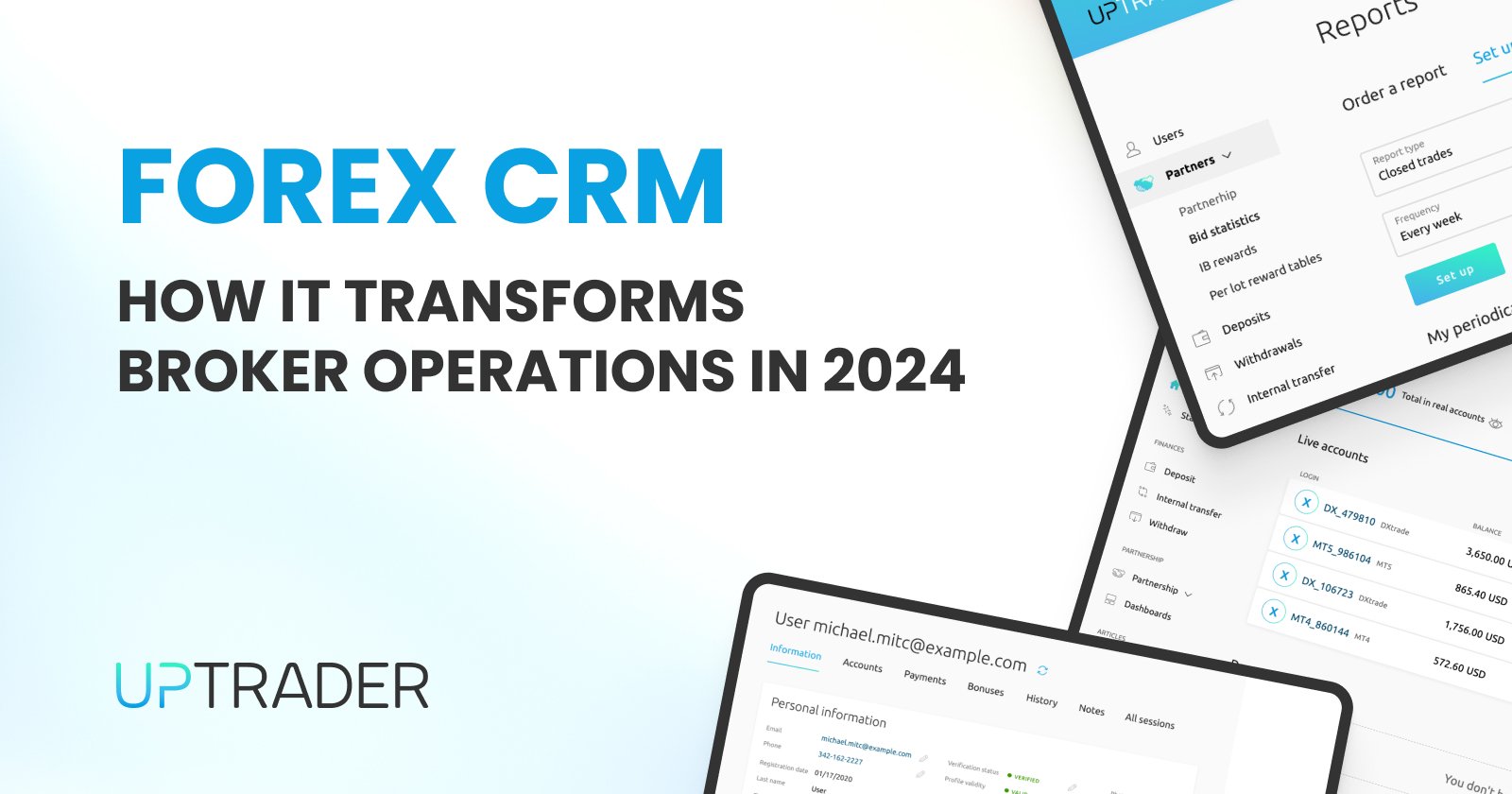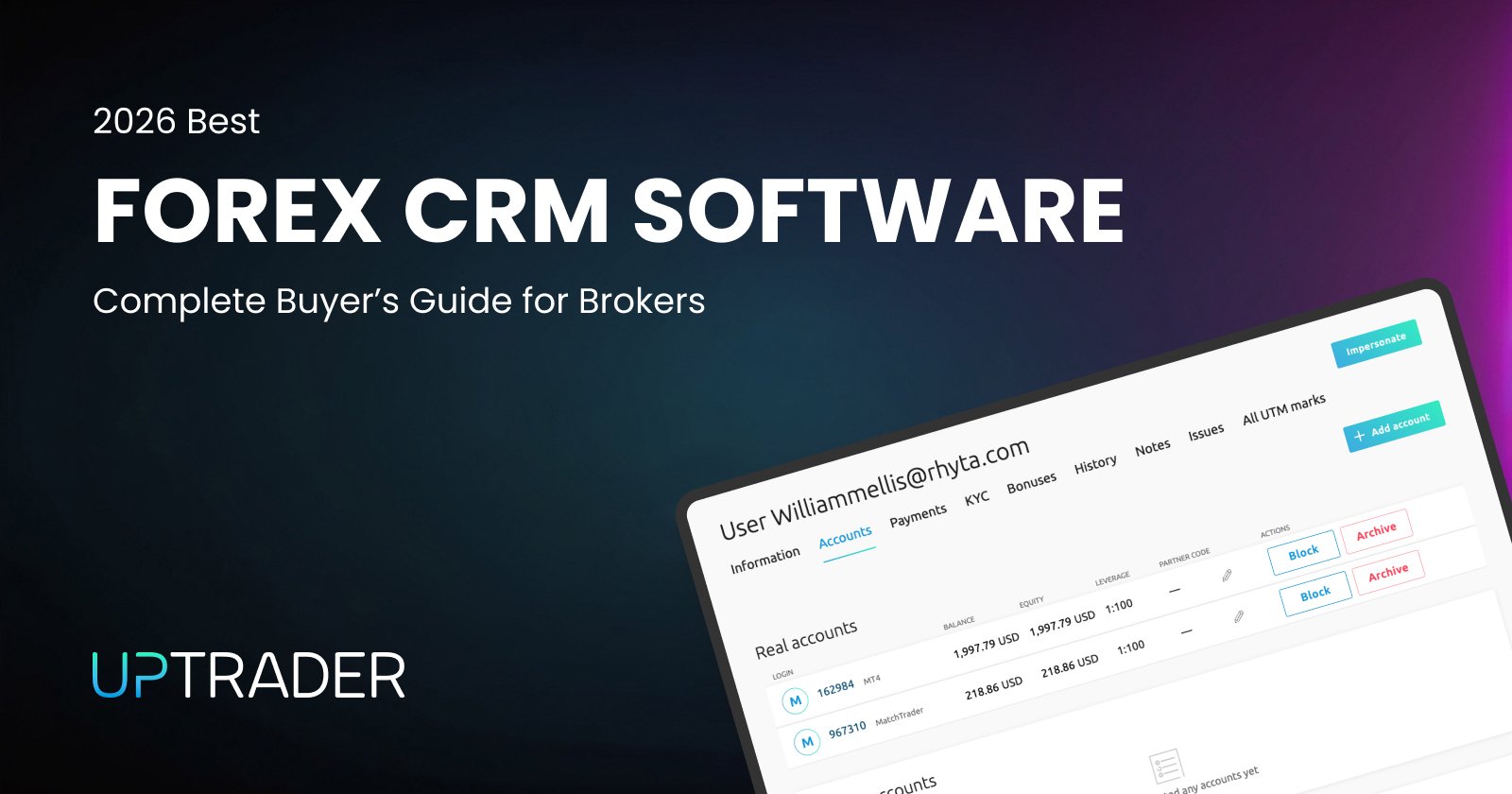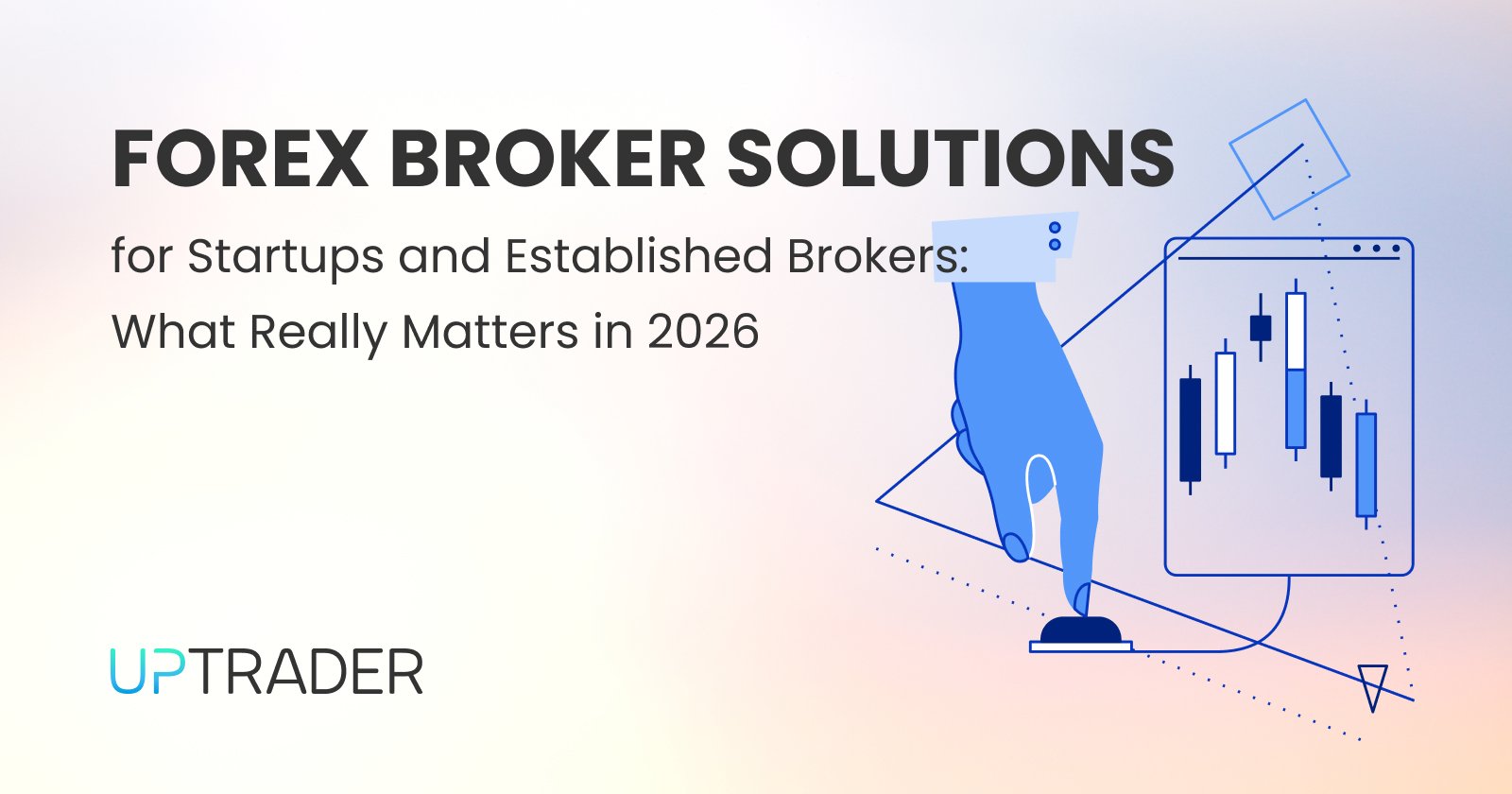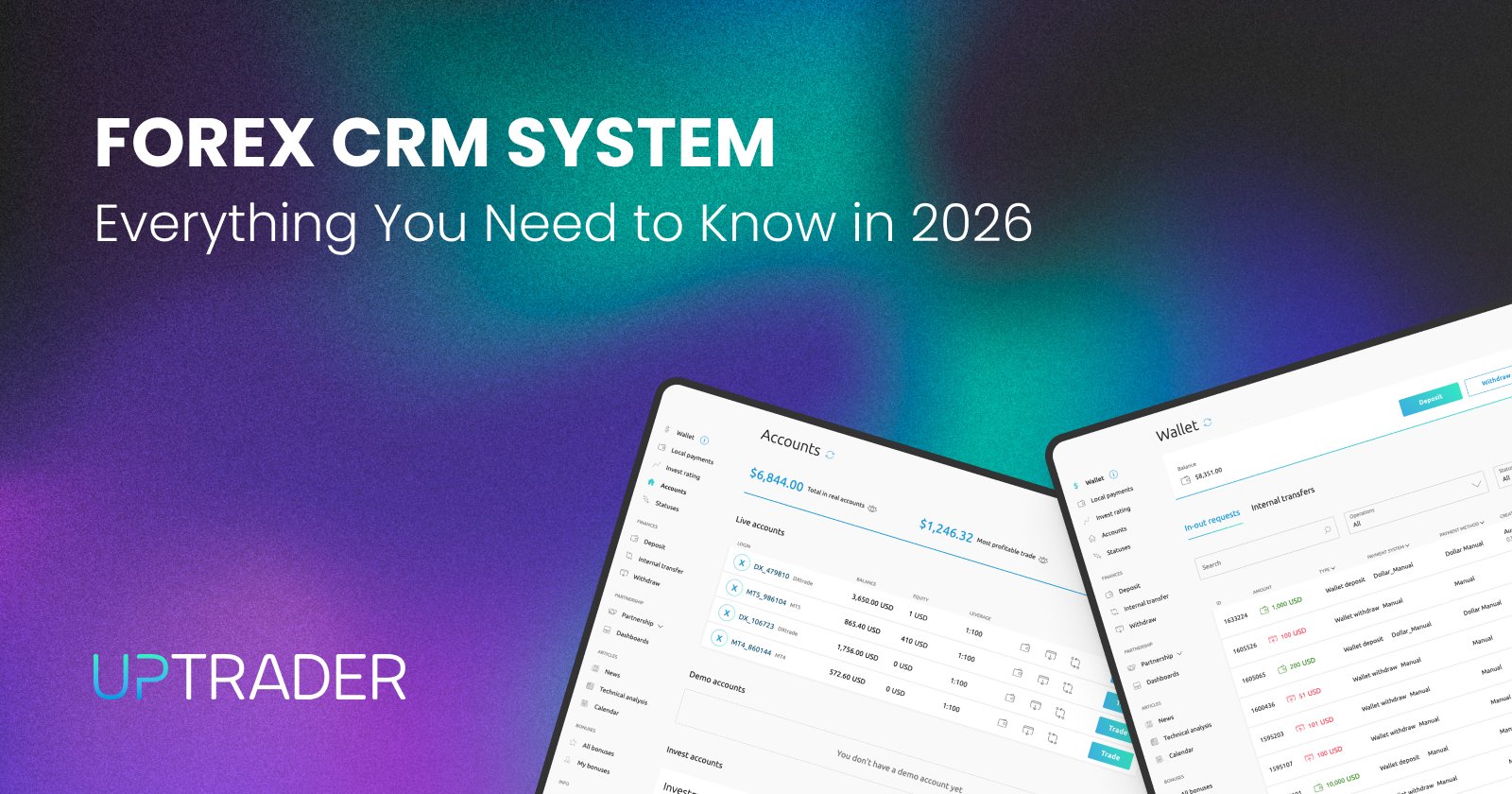How Forex CRM Transforms Broker Operations in 2024

Share this publication:
Introduction to Forex CRM System
Customer relationship management (CRM) systems are essential across different markets, and Forex, in particular, is no exception. A Forex CRM system is a system specific to Forex, used to manage the relationship between Forex brokers and their clients. Today, Forex brokers operate in an ever-challenging environment where clients update their demands, regulations get stiffer, and data increases significantly. Hence, unlike regular CRM systems, Forex CRMs have been designed to meet the specific needs of trading and brokerage.
As of 2024, Forex CRMs are no longer just for managing customers. They are all-inclusive Customer Relationship Management Solutions that include customer profiles and managing leads, marketing forcings, compliance management, and even, trading analysis. Such platforms assist brokers in making decisions backed with data, removing redundant processes, and operating at a high level of customized service to the clients.
Key Benefits of Forex CRM
Forex CRM systems bring a host of benefits that can streamline broker operations, allowing them to enhance efficiency and focus on core business goals. Here are some of the primary advantages:
Centralized Customer Information
Brokers utilize forex CRMs to have a clear database in one place where every single information about the customer is stored including contact addresses, preferences in trading, and the history of transactions made. When all the data is in one place, the broker can have a holistic understanding of the client, hence enhancing the communication with the clients and minimizing the time taken to respond. All members of the team; including sales, compliance, and everyone else can have access to the necessary information.
Improved Lead Management and Conversion Rates
A significant part of success in Forex business is certainly effective management of leads. Lead generation tools are integrated into Forex CRMs and they help brokers with better lead organization, management, and follow-up. In particular lead scoring and automated workflows allow brokers to work on the leads that can be turned into lucrative customers and push them through the sales process increasing the overall efficiency.
Enhanced Regulatory Compliance
Since the regulatory environment is different within various regions, compliance in this line of business is undoubtedly a priority for a forex broker. Emphasis also may be made that more efficient Forex CRM systems ease matters of compliance thanks to built-in KYC, AML, and GDPR safeguarding solutions. Brokers can keep the necessary documentation, track clients, and alert the management on certain customers' behavior or operations with the help of specific systems, thus helping compliance in a way where no heavy human resources involvement is required.
Streamlined Onboarding Process
The onboarding of clients is another important stage for brokers to consider. Based on business logic, Forex CRMs enable drafting individual onboarding processes, automating activities such as KYC screening or gathering documents as well as account activation processes. Automated workflows eliminate the excessive workload placed on client relationship managers, ensuring a more pleasant onboarding phase for new customers.
Enhanced Customer Retention
Retaining clients is much more economical than trying to gain new ones, particularly in the case of Forex. With the help of Forex CRM systems, brokers enrich the customer’s experience by introducing them to marketing activities, offering personalized suggestions, and providing active assistance.
Analytics and Reporting
The performance of a business is based on data analytics. CRMs or Forex Customer Relationship Management systems possess enhanced reporting capabilities. Reports cover client activity, booking leads, growing revenue, and customer retention rates. With real-time analytics, for example, brokers can make business decisions in any marketing or selling environment.
Technological Advancements in Forex CRM Systems
In 2024, technology is reshaping Forex CRM systems with features designed to improve automation, personalization, and security. Here’s a look at some of the major technological advancements:
Artificial Intelligence (AI) and Machine Learning
Forex CRMs are changing and advancing thanks to several factors, artificial intelligence and machine learning which have made it possible to use predictive analytics, lead scoring, and personal suggestions. Patterns of customer behavior and past trades are analyzed through machine learning, which allows brokers to predict a client’s needs and create an appropriate broker-client space. But additionally, to this functionality, AI chatbots become more widespread as they give the possibility to our customers not to wait for the answers but rather get instant answers without involving our employees.
Automation and Workflow Optimization
Automation is key to enhancing efficiency. Forex CRM performs tasks that tend to be repetitive such as sending out email campaigns, conducting KYC/AML procedures, and onboarding activities. Task automation encourages task completion with minimal human errors, within short periods and makes sure that all the tasks are completed in the same way every time.
Cloud-Based Solutions
With Cloud technology, brokers can use their CRM software from any location and this is very important for Forex brokers who have teams that work away from them or are based in different countries. Then, cloud-based Forex CM Systems allow for scaling, less cost on infrastructures, and more security as they use cloud providers for security.
Advanced Security Features
With cyber threats on the rise, security is paramount. Today’s Forex CRM systems come equipped with high-level security to help prevent unauthorized access to customers’ private information and loss from external or internal systems, for example, two-way authentication and encryption, audit trail updates, etc.
Integration with Trading Platforms
Seamless integration between CRM and trading platforms, such as MetaTrader 4 and MetaTrader 5, enables brokers to offer a more unified experience. Brokers can monitor trading activity, execute transactions, and provide account insights, all from within the CRM platform.
Mobile Access and Responsive Design
Today’s Forex clients expect the flexibility of mobile trading, and brokers need the ability to manage operations on the go. Many Forex CRMs now offer mobile-responsive designs and apps that enable brokers and clients to access essential features on their devices.
Challenges in Implementing Forex CRM Systems
Integration with Existing Systems
Many brokers use multiple software solutions, such as trading platforms, analytics tools, and marketing software. Integrating a new CRM with existing systems can be complex and may require additional resources to ensure smooth compatibility.
Cost and Resource Allocation
Forex CRM systems, especially those with advanced features, can be costly to implement. Brokers may also need to allocate resources for training and ongoing support. For smaller brokers, the investment can be significant, so they need to assess ROI carefully.
Data Privacy and Security
Forex brokers handle vast amounts of sensitive customer data. Ensuring data privacy and security is a top priority but can be challenging, particularly with the increased risk of cyber-attacks. Brokers need to choose a CRM with robust security measures and dedicate resources to manage data protection.
Change Management
Implementing a Forex CRM often requires a shift in workflow and mindset. Brokers must train their teams to use the system effectively and ensure that employees understand the value of the CRM in their daily operations.
What’s Next for Forex CRM in Broker Operations?
As technology continues to evolve, Forex CRM systems will also see new trends that will further reshape broker operations. Some anticipated future developments include:
Enhanced AI and Personalization
Future Forex CRMs will likely offer even more personalized experiences, with AI-driven recommendations that adapt in real time to client behavior. It will be easy for brokers to offer services tailored to individual users which will aid in enhancing retention and engagement of clients.
Blockchain Integration
Blockchain technology can enhance security and offer a level of transparency which is key when working with clients. Such a blockchain-based CRM could enhance streamlining of business processes and at the same time enhance transaction confidentiality due to the clear and everlasting records of transactions kept in the distributed ledger technology.
Comprehensive Analytics for Predictive Trading
As for dealing with data, predictive analytics will also be refined and thus will enable the brokers to have a greater insight into the trends of the traders’ activities and the trends available for exploitation. In addition, it is predictable that some CRMs will come with trading engine linking capabilities for processors in an instant.
Natural Language Processing (NLP) in Customer Support
Support Chatbots with Natural Language Processing (NLP) technology will help in understanding complex client requests and will enhance customer service through automation and speed – without compromising accuracy. This development also translates into allowing brokers to devote more time to things that create more value for the business and satisfy the clients.
Expanded API Ecosystem
Brokers can integrate their CRMs with numerous third-party software applications to enhance their performance thanks to the use of APIs. On the other hand, more sophisticated API grooming will help brokers improve their CRMs by providing them with marketing applications, trading platforms, and analytical services for seamless operations.
Conclusion
In 2024, Forex CRM systems are now mandatory tools for even those brokers who want to improve their operational processes and keep their clients happy while still navigating through a fast-paced business environment. Forex CRMs allow brokers to divert their attention from operational obstacles to more strategic pursuits by making it possible to consolidate all client data and reduce internal processes while making use of AI and automation.
There are many facets of the advancement of Forex CRM technology that are indeed thrilling- there is already talk about things like personalization by AI and Blockchain technology. Thus, as these systems are embraced and adopted by brokers, they will be easily able to cope with the changes in the industry and provide great service to their clients.
If you want to try amazing functionalities like robust CRM solutions, Copy trading platforms, and platforms with PAMM And MAM modules, then talk to a consultant on our site today and try UpTrader today to excel your brokerage to new heights!







